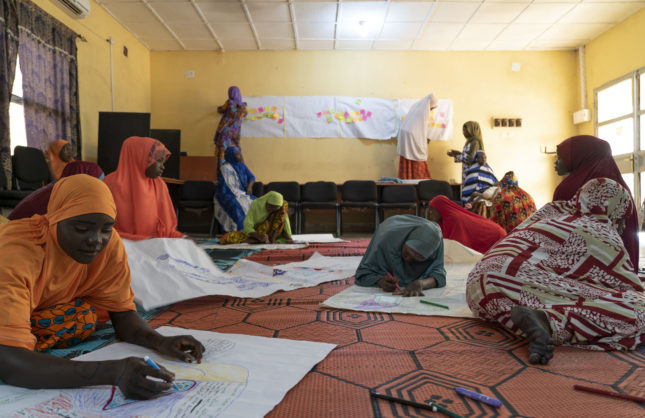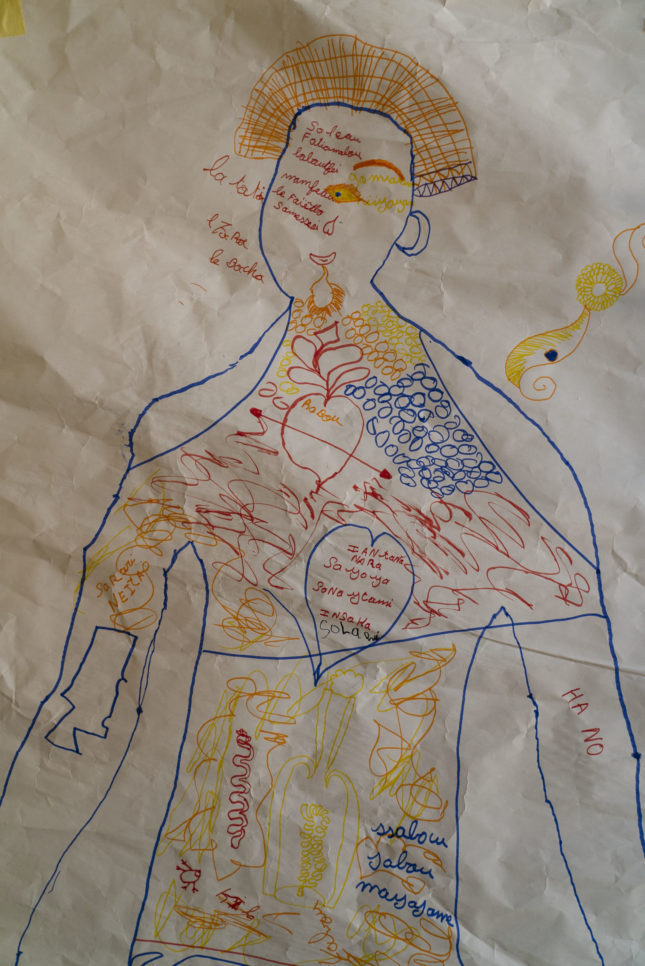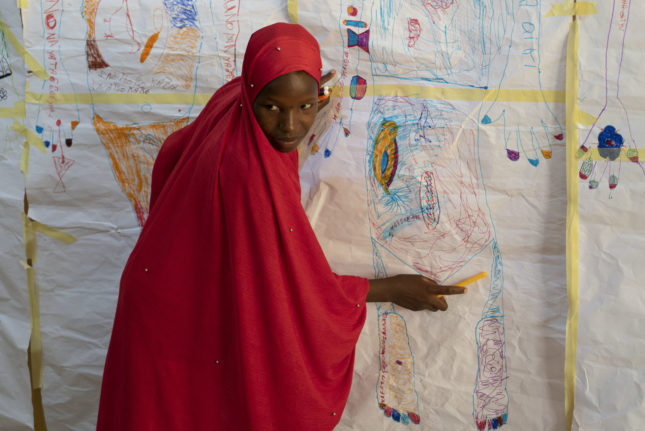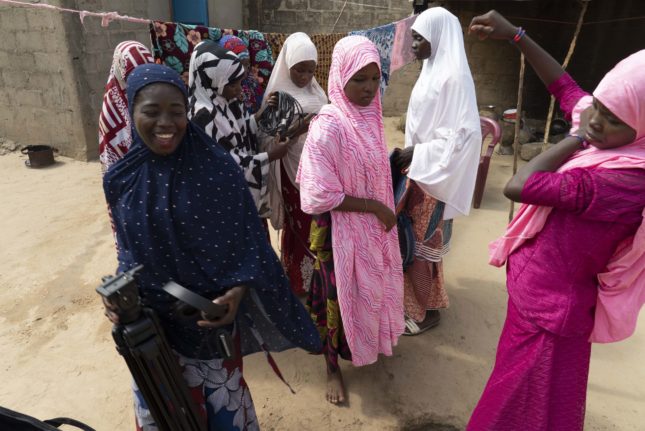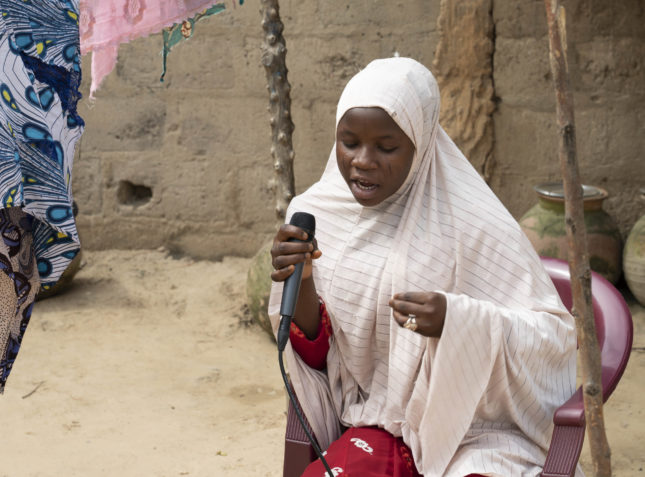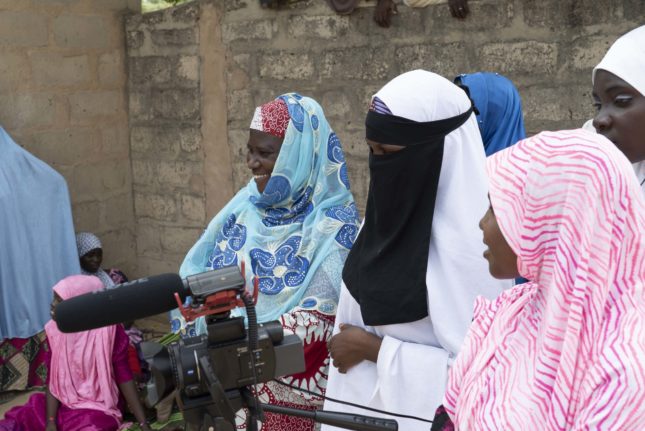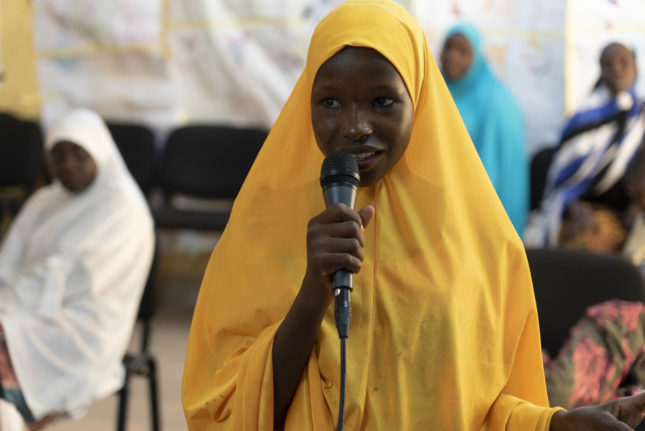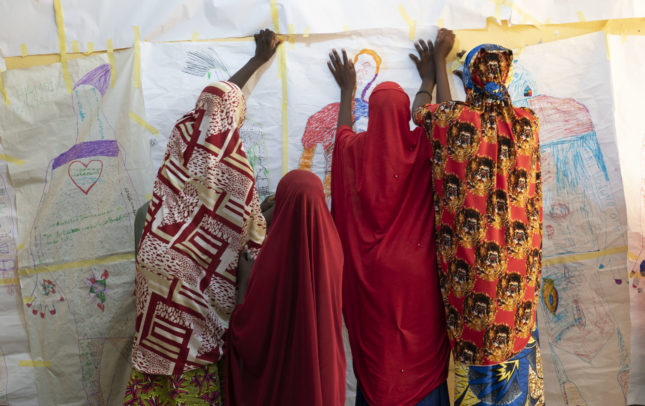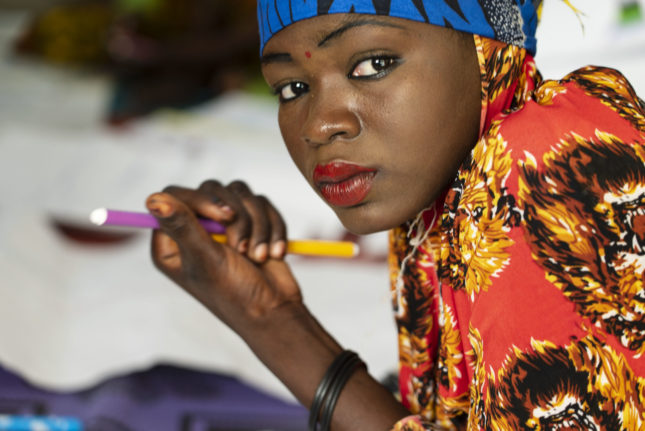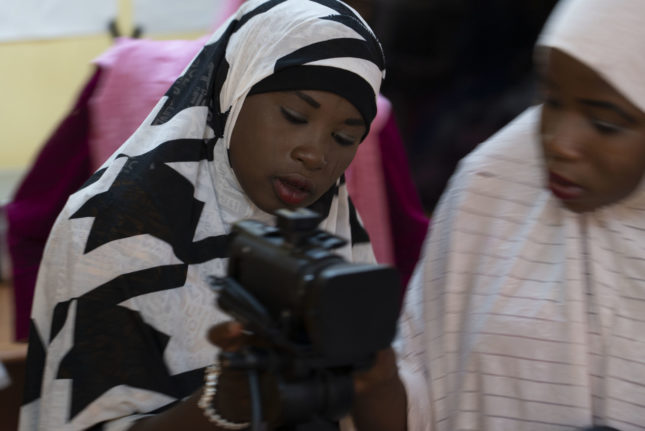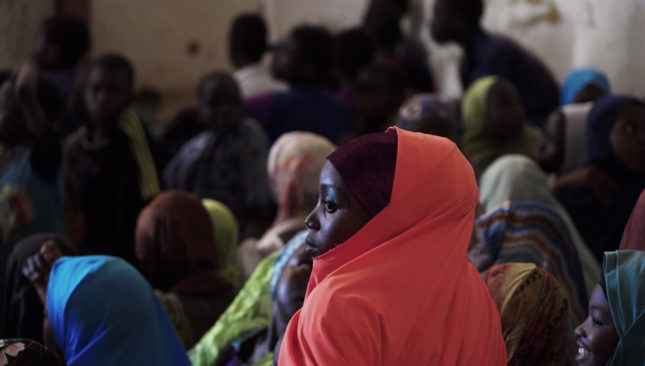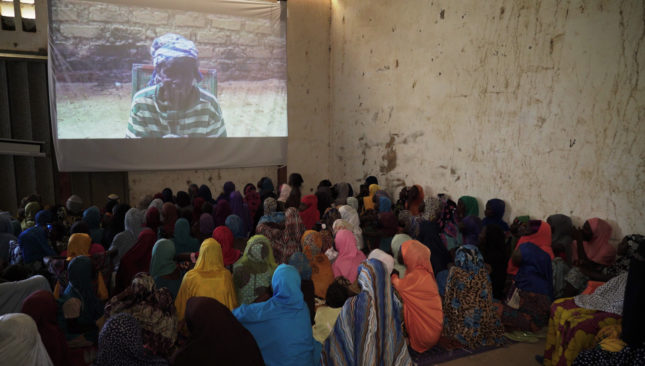Girls empowerment and intergenerational dialogue in Niger
Strengthening girl’s capacity for independent monitoring and for spreading awareness within their communities
UNICEF is working in Maradi, Niger on several programs of empowerment in collaboration with local actors to raise awareness and induce a change in the practice of early marriage. Within this context Visual Exchange was involved to hold a participatory workshop with young girls with the objective of capacity building and empowerment. The goal was to crystallize girls’ awareness and strengthen their position within the community as for them to continue the process of monitoring of early marriage within their villages after the end of the project and communicate further developments with UNICEF representatives through audio-visual materials.
PREPARING THE GROUND FOR A BOTTOM-UP PROCESS OF CHANGE
The objective for the group of girls participating in the participatory video is to generate a so-called oil strain effect. In other words, they seek to have an impact on the broader social dynamics associated to child marriage and on as many people as possible, such as religious authorities and parents that hold a high degree of influence in their children’s lives.
To be able to amplify their voices and spread new views within their communities while monitoring the developments of early marriage, they must acquire a higher degree of agency and influence vis à vis actors that hold traditionally more power in the social structure, needing thus to challenge the hierarchical relations of their communities and initiate a process of horizontal and vertical communication.
In this context the participatory video facilitates the process by providing a tool – the camera – that is an empowering instrument through which the young girls can mobilize their voices and channel the communication with parents, girls and traditional leaders.
The camera places temporary the users in a position of power from which they can interact with key personalities that were before unreachable due to social hierarchies and unequal power relations. In this way thus the participatory video mediates a new dynamic in which there is a break in traditional social roles between the girls and the elderly allowing for communication and help to begin new paths of dialogue outside the boundaries of rigid social and traditional barriers.
MOBILIZING VOICES, GENERATING EMPOWERMENT
The media tools of communication and their appropriation by the community can facilitate the process of social communication and monitoring. The appropriation of the tool and techniques by the girls leads to a feeling of stronger responsibility towards their peers and the overall community and to a sense of empowerment that comes from the fact that they feel to be important for other girls and their community.
The workshop with the participatory video has considerably facilitated this goal in generating a situation in which girls could experience and feel at ease in interrogating and expressing their points of view to elderly members of the community and their parents.
BREAKING THE BARRIER OF SILENCE
An important stage of the participatory video prosses is the cycle of screenings across communities. During these moments, girls, boys and parents have the opportunity to view their own representations and to discuss about the issues raised in the video. What emerges during the screenings in Maradi is an important consent over the fact that early marriage represents a practice that must be questioned and that poses major problems for young girls.
The collective debates generated at the screenings leads to a further crystallization of the arguments of early marriage and strengthens community’s awareness.
Furthermore, the video exposed girls’ ability for performance, their eagerness to learn and demonstrated that they can achieve important results if they commit to missions and life-paths other than the traditional ones assigned to women.
PARTNERS

![UNICEF_cyan [Converti]-01](https://www.visualexchange.eu/wp-content/uploads/2022/01/UNICEF_cyan-Converti-01-e1643648440427.png)
UNICEF Niger, Republic of Niger
Photographs / Videos ©2020 Federico Varrasso / UNICEF Niger
YEARS
2019 – 2020


